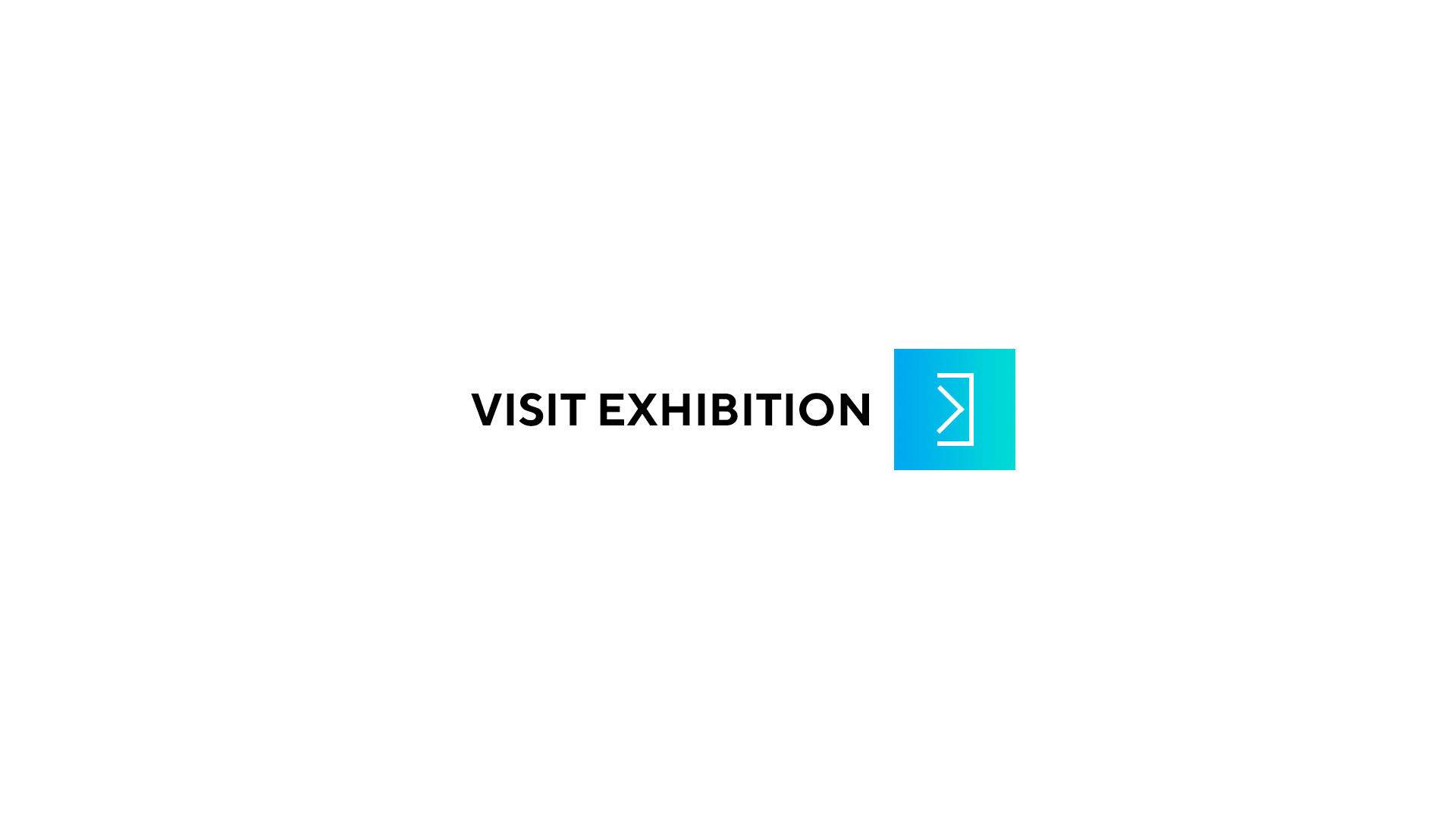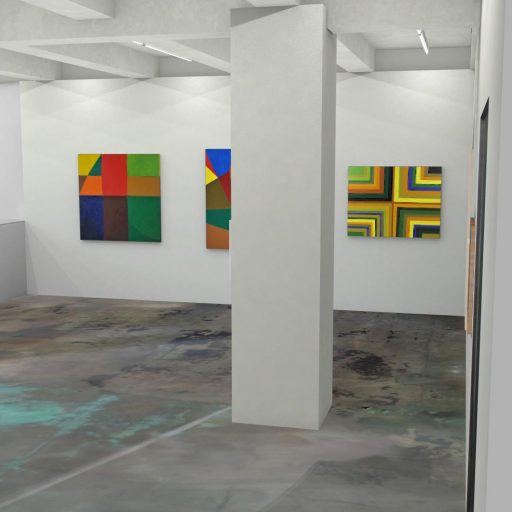

A “trace” denotes “a mark, object, or other indication of the existence or passing of something” and, as a verb, to “find or discover by investigation.” (Merriam Webster) It is also interesting to note that the archaic definition of “trace” is “a course ... more >> “It’s impossible to move, to live, to operate at any level without leaving traces, bits, seemingly meaningless fragments of personal information.” (William Gibson)
A “trace” denotes “a mark, object, or other indication of the existence or passing of something” and, as a verb, to “find or discover by investigation.” (Merriam Webster) It is also interesting to note that the archaic definition of “trace” is “a course or path that one follows.” Each of the four artists included in this exhibition embeds traces of their environment, their ancestors, or themselves in their works on paper, paintings, and sculpture, leaving indelible clues as to what has passed and a trail of the path taken to arrive there.
So much of our current environment swirls around us, seemingly of the moment and ephemeral: text messages, social media posts, a churning, ever changing news cycle, and yet as ephemeral as all of this seems, it simultaneously leaves indelible traces that do not disappear as readily one might have thought, and cannot be scrubbed away as easily as some might have hoped. As things becomes less fixed and more in flux, traces of what has passed nonetheless stick stubbornly.
“Through the years, a [wo]man peoples a space with images of provinces, kingdoms, mountains, bays, ships, islands, fishes, rooms, tools, stars, horses and people. Shortly before [her] death, [s]he discovers that the patient labyrinth of lines traces the image of [her] own face. (Jorge Luis Borges)
Included in this exhibition are several of Sharon Horvath’s recent paintings, among them a large painting titled “Strangelove, 2001” in which she continues to develop her exuberant, uncanny mindscapes that suggest actualities and / or fallibilities of perception. The two-dimensional canvas and paper surfaces that Horvath uses act as a metaphor for a window or portal into both microcosms and macrocosms: a universe that considers our place in the world. Also included is “Save the Date” a large tabletop display of studio ephemera, a collage-in-flux. Imprinted paint cakes, newspaper clippings, notations for future plans, color studies and drawings are juxtaposed. These curious material traces and by-products of studio life show the moving parts of the artist’s thought process, and mark the passing of days and years. These reference materials reflect a dream-like logic of infinite possibility that inspires the paintings. Quoting Barry Schwabsky (quoting St. Augustine’s Confessions), writing on Horvath’s work, “’What I measure is the impression which passing phenomena leave in you,’” “’…which abides after they have passed by. . . ‘”
Sharon Horvath grew up in Cleveland, Ohio and moved to NYC when she was 17 where she received her BFA from Cooper Union, an MFA from the Tyler School of Art, Temple University in Philadelphia and Rome, and also attended Skowhegan School of Painting and Sculpture. Horvath’s awards include a Fulbright Research Fellowship to India, a Guggenheim Fellowship, the Rome Prize, the Anonymous was a Woman Award, the American Academy of Arts and Letters Award for Painting and, two Pollock-Krasner Foundation Grants, a Prize for Painting from the National Academy Museum, a Mid-Atlantic NEA Regional Fellowship, an Elizabeth Foundation Grant for Painting. Other recognitions include the Faculty Prize for Outstanding Commitment as a Teacher and a Mentor from the University of the Arts in Philadelphia. Horvath is an Academician of the National Academy Museum and School and Professor of Art in Painting and Drawing at Purchase College, SUNY.
Sermin Kardestuncer‘s work has always included traces of her ancestors and her environment. The daughter of a Turkish tailor, she has often incorporated thread and stiching in her works on paper, cloth, even sheetrock, wood, metal, and concrete. During the 1990s, while living and working on a remote Greek island, she ran out of paint and discovered that the reddish earth around her worked equally well as pigment. This began a series using earth from the countries that she visited or lived in (Greece, Turkey, Italy). Her abstractions initially recall the work of minimalist artists of the 1960’s and 70’s but upon closer inspection her integration of seductively worked materials produces nuanced compositions, and via the organic nature of her hand-work she creates her own vernacular. One of the pieces included in this exhbition will be a diptych with 301 small balls made of cotton thread unraveled from fabrics and studded with coal from Soma, Turkey, as an homage to the 301 miners who died there in 2014. Kardestuncer visited Soma on the one year anniversary of this tragedy and after seeing the grieving families decided to make this work. “The ancient Greeks believed columns represented people…” and so “…each ball represents a person who died.”
Kardestuncer was born in Gemlik, Turkey. She received a BFA from the University of Connecticut, Storrs and an MA from New York University. Her work has been included in numerous exhibitions at institutions including The Bronx Museum of the Arts, MoMA/PS1, Art in General, Brooklyn Museum (all NYC), as well as the Davidson Visual Arts Center (NC). She has received awards from the Pollock-Krasner Foundation and Anonymous Was A Woman and has participated in residencies at Ucross, Wyoming and The Rockefeller Foundation at Bellagio, Italy. She currently lives and works in New York City.
Darina Karpov’s recent porcelain sculptures evolve seamlessly from her drawings and paintings—which have always exhibited a three-dimensional quality—and seem to have emerged directly from the two-dimensional surfaces. Conversely, in her recent works on paper she has incorporated collage, cannibalizing remnants of her own drawings and watercolors, bringing a direct sense of three dimensionality to the two-dimensional works and integrating traces and disparate fragments from extant works. Two collage diptychs included in this exhibition are titled “Recombinant” in reference to the traces and mutations of different DNA strands. “…Karpov…charts an always-deviating movement of thought and image that is sudden, layered, and constant…” and “…bound together by the overlaying traces of their own urge for movement.” (Andrew Frank)
Karpov was born in Saint Petersburg, Russia. She moved to the US in 1991 and received an MFA from Yale University School of Art and a BFA from the Maryland Institute, College of Art. She received her initial art training at the preparatory school for the Academy of Fine Arts in St. Petersburg, later studying at the Moscow Institute of Technology. She has received residencies and fellowships from the Yaddo Corporation, the MacDowell Colony, Pollock-Krasner, and others. Her work is included in numerous permanent collections, has been exhibited widely, and has been included in such publications as “Frozen Dreams: Contemporary Art from Russia” (Thames & Hudson). She currently lives and works in Brooklyn, NY.
Annie Vought’s paper works are comprised of intricate cut-work, incorporating text from a variety of personal sources, including family members’ letters, her own text exchanges, and overheard fragments. The negative space is cut out and the words traverse the surface in undulating patterns, at times legible, at times indecipherable. “I believe handwritten records are fragments of individual histories… A letter is physical confirmation of who we were at the moment it was written, or all we have left of a person or a period of time.” Vought’s father was an artist and the works included here are made on paper culled from his sketchbooks, the substrate of completed pieces containing traces of his sketches, at times partially visible or obscured. She has referred to her works as “emotional artifacts,” containg physical traces of conversations, relationships, and events.
Vought (born, Colorado) grew up in Santa Fe, NM and currently lives and works in Oakland, CA. She studied at California College of Arts (San Francisco), received a BA from the New College of California, and an MFA from Mills College (SF). She has received an Irvine Fellowship, Montalvo Residency, a Herringer Family Foundation Award. Her work has been included in exhibitions such as “Sculpted Fiber”?(Museum of Sonoma County, CA), “Disruption” (Yerba Buena Center for the Arts (SF, CA), among others.










